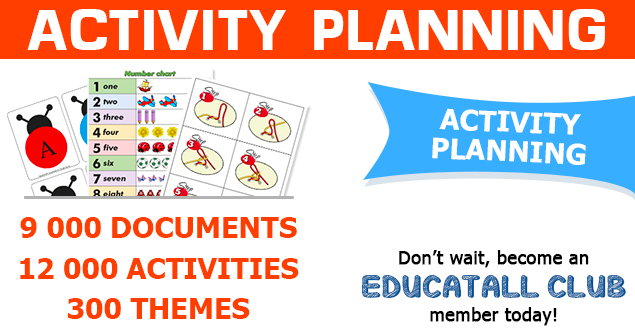
How and why you should write anecdotes for parents
Do you regularly share things you have observed throughout the day with parents or do you communicate with parents solely to discuss problems or difficulties? In my opinion, writing anecdotes, brief summaries of the day’s events, is very important for many reasons. In this article, I will share several elements that may convince even the most sceptic to compile anecdotes pertaining to daycare life.
Why is writing anecdotes important?
To write anecdotes, you must first observe the children in your group. Without even realizing it, you regularly observe the children under your care throughout the day, noticing their good deeds, their little successes, and their challenges. Observation helps you understand their behaviors as well as where they stand in terms of childhood development. Making note of these observations in the form of short stories or anecdotes is important. Failing to do so may lead to lost information that may be highly pertinent in the future. Writing anecdotes will help you:
- Focus on children’s strengths.
- Determine where children stand in terms of childhood development and evaluate their progress.
- Discover children’s interests and abilities and plan activities they will enjoy.
- Share pertinent information with parents.
How should anecdotes be written?
Anecdotes or short stories describing events or situations must be meticulously written. They must represent your observations as accurately as possible. To be efficient, they should:
- Focus on what a child said or did.
- Be factual (based on observed facts, no interpretation).
- Be precise.
- Be brief and to the point.
- Represent a realistic goal, for example, you may aim to write two anecdotes per child each week.
When writing short stories or anecdotes, you must:
- Include the date.
- Begin by identifying the moment, the location, and the people who were present.
- Describe what the child said or did, if possible using quotes to document his language skills (useful for evaluating progress).
A few useful tricks
We all know how the days fly by. With everything that goes on in a daycare, it’s very easy to forget to write observations down. Often, we intend to remember a detail or situation and write about it later, but that just doesn’t happen. Here are a few simple tricks that may help you:
- Post-it notes should always be readily available. When something happens, you can quickly jot it down on a Post-it and stick it somewhere in plain sight to help you remember to transfer the information to the child’s journal when you have a few minutes, for example during naptime or free play.
- Create an anecdote journal for each child. Simply insert a few loose-leaf sheets in a Duo-Tang for each child in your group and use these journals to keep track of your observations. Send the journals home at the end of each week so parents can read them over the course of the weekend.
- Use abbreviations to simplify your note-taking.
Writing your observations down may seem like a waste of time, but the short stories or anecdotes you write will be useful for evaluating how far children have come and transferring important details to parents. What’s more, your short stories and anecdotes will help you efficiently plan activities that are perfectly adapted to the capacities and interests of the children in your group.
Maude Dubé, Specialized educator

 Home
Home Theme activities
Theme activities
 Babies and toddlers
Babies and toddlers
 Arts and crafts
Arts and crafts
 Science
Science
 Creative recipes
Creative recipes
 Tips and tricks
Tips and tricks
 Special needs
Special needs
 Extra activities
Extra activities
 Educ-TV
Educ-TV
 Newsletter
Newsletter  Online store
Online store Educatall club
Educatall club

